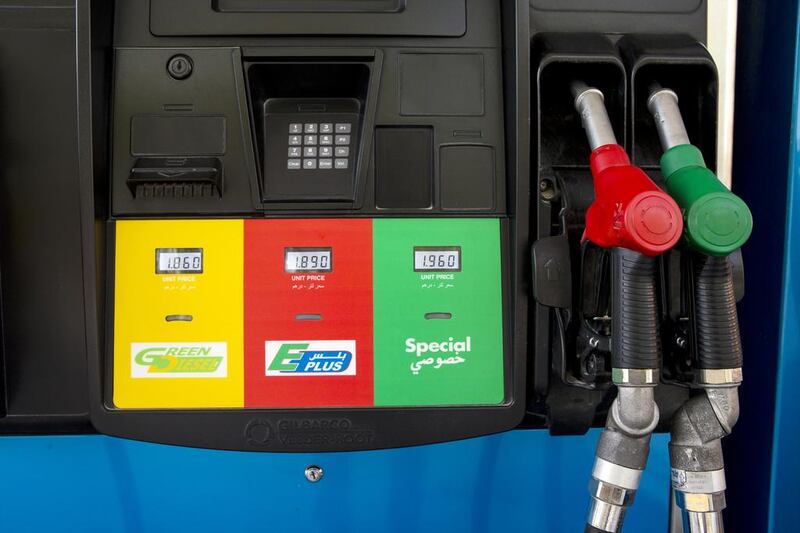A big switch to diesel vehicles in the country is expected following the recent move by the UAE Government to set petrol and diesel prices more in line with world market levels.
Industry executives say commercial fleet operators in particular have been studying the effects of the change in the fuel price regime – which has made diesel cheaper than petrol – and are making the switch to save on overall distribution costs.
At the same time, fleet operators have been considering the longer-term cost implications of tighter vehicle emissions standards – which are being weighed by the UAE and other GCC governments.
The price switch last month was aimed at cutting the Government’s fuel subsidies at a time when low oil prices are putting budgets under pressure.
The Government also highlighted its desire to move motorists to more fuel-efficient vehicles and to lower greenhouse gas emissions.
In the initial move diesel prices were cut by 29 per cent while petrol prices rose 24 per cent. Both were cut this month by about 8 per cent, leaving diesel at Dh1.89 a litre and premium petrol (Special 95) at Dh1.96 a litre.
The change in relative fuel cost is expected to be significant for operators of commercial vehicle fleets.
“Everyone is seeing this opportunity of a lower diesel cost and how can they lower their distribution cost to improve profitability,” said Paul Greenwood, the chief executive of Massar Solutions, formerly known as Al Wathba, one of the UAE’s largest fleet management and vehicle rental companies.
“Our suppliers – notably Toyota and Mitsubishi – are currently running surveys with us and their other big customers as to how we are gauging the demand for diesel vehicles,” Mr Greenwood said. He said there was a clear advantage to moving to diesel, even if that means upgrading to larger vehicles.
Patrick Fourniol, the head of Toyota marketing at Al Futtaim Motors, said he also expects to see rising demand for diesel vehicles driven by the lower fuel cost, at least in the short term.
“We forecast a diesel vehicle demand increase relative to the fuel cost increase [of petrol],” said Mr Fourniol, who believes diesel vehicles’ fuel costs to be 10 to 15 per cent lower than those with petrol engines, and even greater for larger vehicles.
The drive for lower-cost diesel vehicles will encourage distributors to offer a wider variety, Mr Greenwood said.
“In the coming months, you are going to see more diesel options coming on to the market,” he said, adding that the changing market dynamics would require a lower-sulphur diesel to be marketed in this country to accommodate a wider varity of engines.
Lower fuel prices will drive the switch to diesel in the short term, but Mr Fourniol said that mature markets had shown that the attraction of cheaper diesel vehicles can peak when other factors come into play.
In the UAE, he said, Toyota has been experimenting with several taxi-fleet operators with hybrid cars – petrol or diesel coupled with electric – to see if those, more expensive, vehicles have lower “total cost of ownership” over time.
In June, the Cars Taxi chief executive, Abdulla Al Sabbagh, said his company’s study of 29 hybrid Toyota Camrys resulted in projected reduced cost over four years of Dh55,000 per vehicle, plus a substantial reduction in carbon dioxide emissions.
Last week, Toyota sold 50 hybrids to Arabia Taxi, and Mr Fourniol estimates it has sold a total of about 250 such vehicles to the country’s taxi operators so far.
That is still a relatively small slice of the taxi market. But Mr Fourniol said that with the changes to the fuel-price regime and the impending tighter emissions regulations between 25 and 30 per cent of the UAE’s taxi fleet will be hybrid vehicles by 2020.
amcauley@thenational.ae
Follow The National's Business section on Twitter





